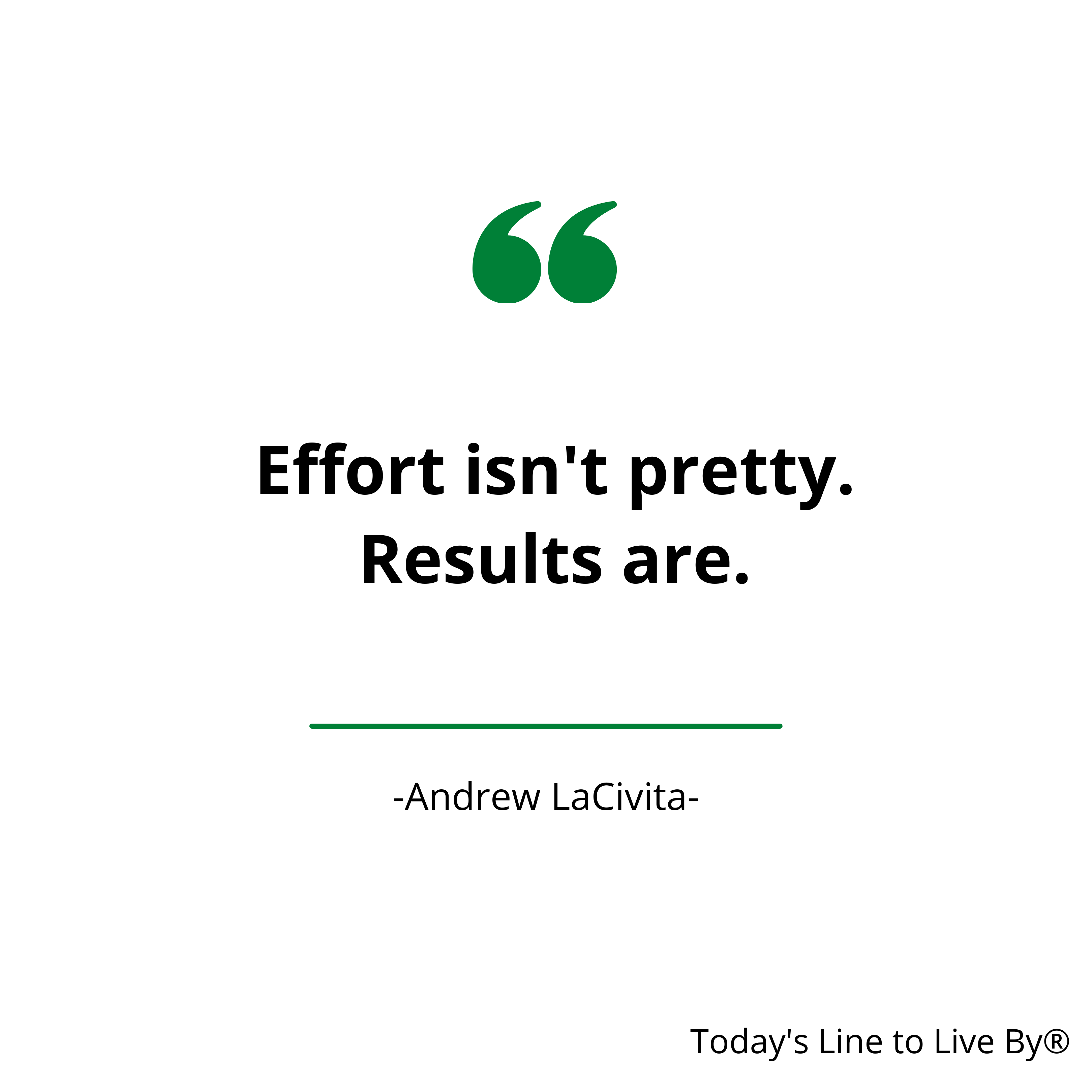I’m sure you’ll read what I’m about to write with varying degrees of passion. I’m guessing the parents who temporarily foreclosed on their lives and the successful, self-taught entrepreneurs might have their doubts.
There might be those non-scholarship-going Ivy League graduates chipping away at a pile of debt working for companies who would never consider any employee sans a top-university degree. Surely this latter bunch must question my sanity for even considering a topic open to debate.
On this rare occasion (alright, for first time ever) I will withhold my opinion. Rather, I’ll offer some (predominantly) economic realities to help you draw your own conclusion. Why?
Worth is the value someone places on a thing, idea, or whatever. It’s perceived more than absolute. This makes determining the value of someone’s college degree as tricky as evaluating the price tags of the abstract art that adorns the walls of my home.
Since I’m in the perception business, I’ll give it go.
First, I enjoyed my years attending a large university. I spent many grueling hours studying (most in a campus bar) to attain a (now very rusty) Bachelors of Science Degree in Electric Engineering (for a life I never pursued).
I have fond memories and friendships that I still nurture thirty years later even though the only recollection I have of Ohm’s Law is that it resembles a horseshoe.
I wouldn’t trade those years away for anything because, well, I don’t believe in trading away or regretting time you’ve already spent. What’s done is done.
Before you (or more likely your child) pursue that precious piece of paper, consider this. You can perceive it however you’d like…
Statistically, data suggests that the education-wage gap has grown over time. In recent years, individuals twenty-five to thirty-two years old with a college degree earned an average of $17,500 more annually than their peers with solely a high school diploma. In 1979, this gap was $9,690 (The Rising Costs of Not Going to College 2014).
Over the course of their careers, bachelor degree holders earn an average of approximately one million dollars more than high school diploma holders. This is all nonsense for so many reasons including no one has any clue what will happen over the course of an individual’s life. Let’s have some fun anyway. There are a number of ways to look at this. One can argue that you could take the $250,000 it would cost to attend a premier college and invest it today (assuming you don’t have to borrow it). Over a forty-five year career, that investment would grow to $945,000 if you achieved a mere 3% annual return and $2,246,252 (yowza!) if you scratched out a 5% annual return. Those are not unrealistic investment scenarios considering that modest rate of return. Of course, this one-million-dollar differential doesn’t account for any compensation one can earn during the four years not attending college. Of course, you can go to a much lower cost college. The College Board indicates that the “moderate” college budget for an in-state public college for 2014-2105 costs $23,410. (If you took the four-year grand total of $93,640 and invested it over the life of an average career at 5% annual return that yields $841,000.) None of these scenarios include any debt repayment that depletes your one-million-dollar “college bonus” as you faithfully repay your student loan and its ridiculous annual interest of 5-8%.
The United States currently has forty-three self-made billionaires. Ten of them do not hold college degrees. You can view the list here. Thirty-two percent of theworld’s top one hundred billionaires didn’t earn college degrees. You can Google this topic. There are dozens of articles related to this.
Trying to keep pace with the rising cost of college is futile. According to College Board, during the thirty-year span between 1984-2014, the average published tuitionof private four-year institutions rose a whopping 146% when adjusted for inflation. The increase for in-state students at public institutions during that same period rose a staggering 225%. In 1984, according to the Social Security Administration, the national average annual wage was $16,135. This is the equivalent of $36,763 in 2014 wages (Bureau of Labor Statistics’ CPI Inflation Calculator). In 2013, the average wage was $44,888 (2014 statistics are yet unavailable). That translates to a wage increase of 22% or 1/10 the relative increase in public institution costs over the same period. I’m not sure who should be flogged for this.
But that’s just dollars and no sense. Moving right along…
Those statistical economic “facts” aside, let’s toss in a few observations from my professional life.
As an executive search firm, my organization milewalk recruits white-collar employees for our customers (hiring companies). Currently, we have twenty active clients seeking professionals of varying seniority levels across a range of business functions. These functions include sales, marketing, product development, project management, technology, finance, accounting, human resources, recruiting, and a number of others. The clients range from small, privately held companies to large Fortune 500 publicly held organizations.
Of those twenty clients, not one single company requires a college degree if the job candidate is the right fit, skill level, and so forth. Zip. Zilch. Zero. Granted, there are exceptions, but their overwhelming sentiment is that experience trumps education. There is absolutely no doubt that many companies will require their professionals to be appropriately educated and certified. This number, however, is significantly smaller than you might imagine.
Another important, related note is that according to our salary statistics for the “experienced” individuals we help our clients secure, there is no wage difference. If you have the experience, you earn what the position pays.
I will grant that this is a small sampling size relative to the entire world. Even so, in the history of my company, we have served one hundred twenty clients and only six of them have required college degrees for their positions. That’s a mere 5%.
I’m certainly not claiming it’s better to not have a degree. I’m simply sharing what we see daily and have observed over the last eleven years.
Shifting gears a bit…
There are obviously many benefits of achieving a degree that go well beyond the economics. For starters, there is one wonderful certainty. Once you achieve that degree, no one can ever take it away from you. It will always be yours.
The reason a college degree’s worth is so difficult to evaluate is due to all the non-economic factors and benefits one gains through the actual experience. There are many including the life lessons of living on your own (if you go away to school), the wonderful networking opportunities, the friendships, the sense of accomplishment, and so on.
I’m not sure what all this means other than the cost of a higher education has skyrocketed over the last three decades. This precipitous rise, which in many cases is tenfold that of wages, has forced people to look more closely at whether the intangible benefits are truly worth it.
If you enjoyed this article, you can find other wonderful tips and tricks related to life and work via the usual social spots at LinkedIn, Twitter, and Facebook.
As always, I give away a complimentary Interview Intervention eBook if you sign up for the milewalk newsletter on the front page of the milewalk Website!
In other exciting news, The Hiring Prophecies: Psychology behind Recruiting Successful Employees is now for sale!









Wow, looks great, especially the conclusion. I was searching
for that subject for a few times across the nest, however there
was nothing precious. So happy to reach your post in the conclusion. I’m
excited about this subject, and I want to be constantly aware of the latest news.
That’s a joy to see your post and finally clarify the issue myself.
Thank you for bringing this topic up. I was looking for up to date advice on this subject
for a few days. Now I’m satisfied because I have
finally attained your post. I enjoy how you present and maintain all
of the facts in addition to your overall writing style. Sometimes, there’s a lack of time to study lengthy pieces, but
yours is short and succinct, I spent just a couple of minutes to read the entire article.
It’s vital since nobody has the time to browse.
What an outstanding post, thank you for rising this serious issue.
Being deeply reassured that a good deal of people would discuss your perspectives, and I even showed your writing to a close friend of mine.
And that’s when the arguments began… We have different views but, obviously,
no matter, be it just something regular or really important, should destroy a real friendship.
In my humble opinion, which certainly has the right to exist, the
purpose you have made cannot be questioned.
Who will write more in relation to you concerning such things!
I promise you, nobody! I enjoyed the article and assume
you have more such material? If so, so please note it because it is somewhat uncommon for me in the
current moment, and not just for me personally, that is my own view.
Hopefully, I will get an in-depth manual of yours and be mindful
of all of the news and the most recent data.
I like the way you present and maintain all of the details as well as your general writing style.
Sometimes, there’s a scarcity of time to study long pieces, but is short and succinct, I spent just a few minutes to read the entire article.
It is vital since nobody has the time to browse.
Thanks for the kind words!
The fresh concept is here).
I have been browsing for a place such as this for quite a long moment.
I was seeking a person who would be able to definitely browse me about this problem
and was fortunate enough to find you. Thank
you a lot for the detailed reason, you drew attention to an extremely common matter!
Although I share your view for the large part, I think
that a few points are worth using a more comprehensive appearance to comprehend what is going on.